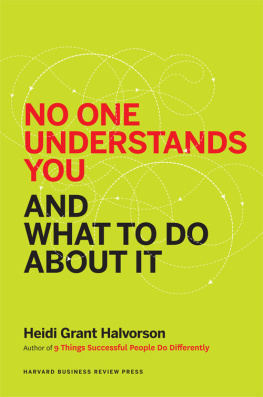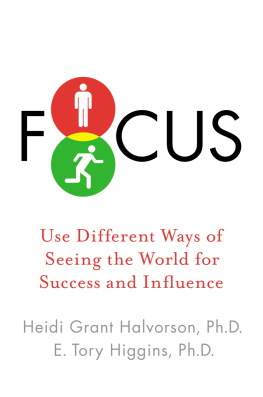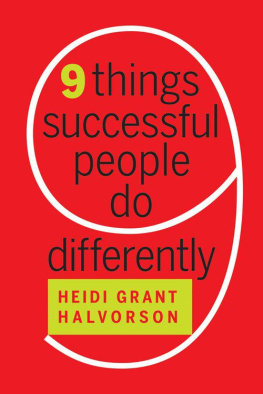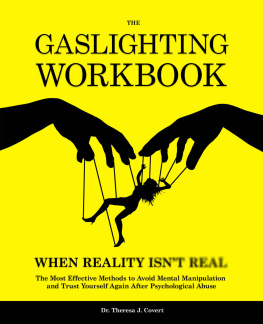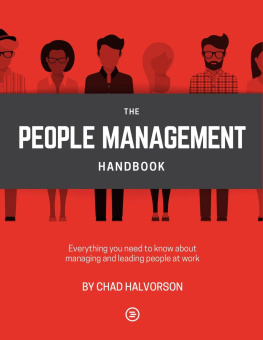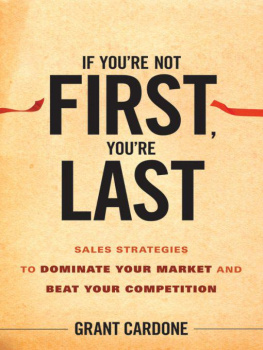Think you know how you come across? Think again. Using a brilliant combination of stories and science, Heidi Grant Halvorson reveals the gulf between how others perceive us and how we perceive ourselves. But instead of leaving us to lament, she shows us how to contend with this sometimes harsh reality. This is a smart, fascinating, and eminently practical book.
Daniel H. Pink, author, To Sell Is Human and Drive: The Surprising Truth About What Motivates Us
This is a great book. Its important, its riveting, and its extremely useful. In fact, its essential for anyone who wants to thrive in their social or business world.
Carol S. Dweck, Lewis and Virginia Eaton Professor of Psychology, Stanford University
Heidis tone and smarts made this book impossible to put down.
David Rock, Director and CEO, NeuroLeadership Institute
Despite your best intentions, your perceptions of people are a mirage, contaminated by your past experiences, needs, and desires. This book will help you see yourself and others accuratelyperhaps for the first time.
Scott Barry Kaufman, Scientific Director, Imagination Institute, Positive Psychology Center, University of Pennsylvania
Heidi Grant Halvorson explores the fascinating research on personal perception. Not only will this book help you to present yourself more effectively, it will also allow you to see the people around you more accurately.
Art Markman, Annabel Iron Worsham Centennial Professor of Psychology, University of Texas at Austin; author, Smart Thinking and Smart Change
There are so many good reasons to read this book. Its smart. Its insightful. Its helpful. But the best reason might just be that its fun. Heidi Grant Halvorson is a great writerwise, knowledgeable, and charming at the same time. I found myself laughing while I was learning.
Peter Bregman, CEO, Bregman Partners; author, 18 Minutes: Find Your Focus, Master Distraction, and Get the Right Things Done
There is deep power in knowing how to have people see you as only you are.
Nilofer Merchant, author, 11 Rules for Creating Value in the Social Era
Being an authentic leader means being perceived authentically. Halvorson masterfully combines research and story to outline why were misunderstood and how to be seen for who we really are.
David Burkus, author, The Myths of Creativity
This is a code book for deciphering one of the great riddles of life: why dont others see us as we see ourselves? With fascinating facts and memorable examples, renowned psychologist Heidi Grant Halvorson shows us the path to making a better impression on others while maintaining a sense of integrity.
Adam Grant, Class of 1965 Chaired Professor of Management, Wharton School, University of Pennsylvania; New York Times bestselling author, Give and Take
The best book ever written on why it is so difficult for us humans to communicate with others and what we can do about it. I was blown away by the masterful weave of stories, rock-solid evidence, and, especially, advice that I can use right now to get my message across without confusing or pissing off the other people in my life.
Robert I. Sutton, Professor of Management Science and Engineering, Stanford University; author, The No Asshole Rule

HBR Press Quantity Sales Discounts Harvard Business Review Press titles are available at significant quantity discounts when purchased in bulk for client gifts, sales promotions, and premiums. Special editions, including books with corporate logos, customized covers, and letters from the company or CEO printed in the front matter, as well as excerpts of existing books, can also be created in large quantities for special needs.For details and discount information for both print and ebook formats, contact .
Copyright 2015 Heidi Grant Halvorson
All rights reserved
No part of this publication may be reproduced, stored in or introduced into a retrieval system, or transmitted, in any form, or by any means (electronic, mechanical, photocopying, recording, or otherwise), without the prior permission of the publisher. Requests for permission should be directed to , or mailed to Permissions, Harvard Business School Publishing, 60 Harvard Way, Boston, Massachusetts 02163.
First eBook Edition: April 2015
ISBN: 978-1-6252-7412-0
Contents
Whatever you may have heard to the contrary, Chip Wilson is not an idiot. The founder and former CEO and chairman of Lululemon Athletica is, in point of fact, a highly successful entrepreneur, philanthropist, innovator, and self-made billionaire. Idiots are very rarely any of those things.
But a 2013 Bloomberg TV interview with him and his wife Shannon, Lululemons original athletic wear designer, was not one of his finest moments. When he was asked about reports of customers complaining about pilling in the companys newest line of high-end yoga pants, he defensively replied that some womens bodies just actually dont work for yoga pants and that the problem was really about the rubbing through the thighs, how much pressure is there. Translation: If your fat thighs are ruining your pricey Lululemon yoga pants, thats your problem. Maybe my pants are not for you. (Incidentally, if you watch the video, you will see Shannon Wilson shoot him a look at that moment that would have surely turned him to stone had he noticed it, which he did not.)
As Elizabeth Harris, reporting for the New York Times , later put it with gleeful understatement, Perhaps going on television and suggesting that women with large thighs were not the ideal customerat least when it comes to yoga pantswould never be considered advisable for the top executive of an athletic wear company.
Wilsons comment was, of course, horribly offensivebut was it Chip Wilsons intention to be offensive? Did he even think what he said was offensive? In a video apology he later issued before stepping down as Lululemons chairmana statement that seemed to be more aimed at Lululemon employees than the customers whose thighs he had impugnedWilson said that he was sad for the repercussions of my actions and that he accepted responsibility, that ubiquitous postdisaster PR phrase that everyone repeats but no one ever seems to mean. But nowhere did he actually acknowledge that there was anything wrong with what he had said or that he personally had been wrong to say it.
Im going to go out on a limb and suggest that Chip Wilson did not intend, with those poorly chosen words, to insult and alienate his loyal customer base. (Or to seriously irritate his wife.) It just doesnt make sense to assume otherwise. So, if that wasnt his intention, and if hes not an idiot (self-made billionaire, people), then what happened?
...
About a year ago, I was brainstorming ideas for my next book, and Ill be honestnone of them were winners. I never cease to be intrigued by the steady stream of new findings and theories that are emerging in my field, so its not that I couldnt find anything interesting to write about. Its that interesting just isnt enough. Readers of the kinds of books that I write expect to be enlightened and equipped with practical, effective strategies they can use in their professional and personal lives. They want knowledge in action, and rightly so. And none of the ideas I was coming up with seemed particularly useful or compelling.
So I did something Ive never done before... I asked my husband. You see, my husband is a very successful and brilliant executive who never, ever reads books on management, innovation, motivation, influence, or any of the kinds of things people like me write about. He hasnt even read my books. Which is why I thought that if I could find a topic that even he would be interested in reading, I might really have something.
Next page
